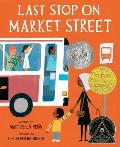I kicked off the letter N in my reading-by-alphabet project with Emily Cheney Neville’s It’s Like This, Cat, the Newbery winner from 1964. I can remember, sort of, what I thought and felt about it when I read it as a kid. For one thing, I thought the main character was verging-on-poor. In truth, he’s the only child of a Manhattan lawyer and they’re doing just fine. Why did I think otherwise? Maybe I associated his ducktail haircut and black sweater he wears “practically all the time” with a James Dean wrong-side-of-the-tracks thing. Or maybe it was because he doesn’t do anything after school or on weekends except listen to records and mooch around the city– no middle-class lessons or sports teams or activities. Things were different in 1964.
One marked difference is the attitude toward spay/neuter. After I finished the book I went and read Amazon reviews, especially the ones by kids, and several were mystified by why the “cat lady” and other people who cared about animals were letting them have litters. The decision about whether to neuter Cat is a BIG DEAL and people are really upset about it! It reminded me of Mary O’Hara’s Thunderhead (sequel to My Friend Flicka) when Rob is like, this horse must never be gelded. Now shelter cats and dogs are routinely altered as young as eight weeks. There’s been a cultural shift.
Similarly, funny to see the cat lady’s vegetarianism described, but not named because I guess a kid in 1964 wouldn’t use the word vegetarian: “I don’t think she really wants to eat the turkey herself. She’s pretty strictly a fruit and yogurt type.”
I ran across a journal article about children’s books set in New York, in which children are flâneurs— walking around, observing and incorporating what they see into their own art and narrative. I hadn’t thought about it, but Ruth Sawyer’s Roller Skates makes a good pair with this book. Elizabeth Enright’s The Saturdays was another one the article discussed. They’re episodic, gradually deepening the characters and bringing them into more intense situations, while the city itself is as much character as background.
I appreciate the 1964 setting more now than I did as a kid– back then I figured it was straight-up reporting on what life was like at age 14 in New York. (Of course, then I was nine or ten, and still listened to vinyl records myself.) Other than that, I think I feel about the same about the book. I like the low-key, clear voice, but I don’t really get why it beat out Rascal for the Newbery.
If you want to check it out, it’s at Project Gutenberg here, with the Emil Weiss illustrations. Emily Cheney Neville died in 1997; I’m surprised it’s public-domain already. I thought I read back when that she came from a wealthy, prominent family, but I couldn’t find much about her online. I’d love to know if she and Louise Fitzhugh ever hung out.
